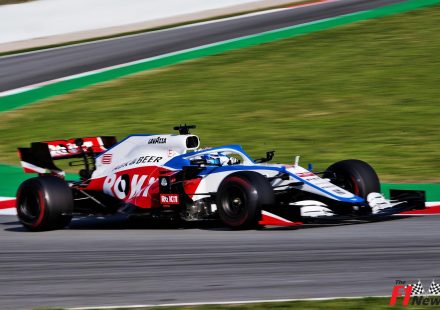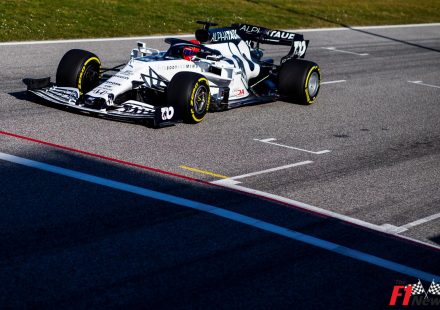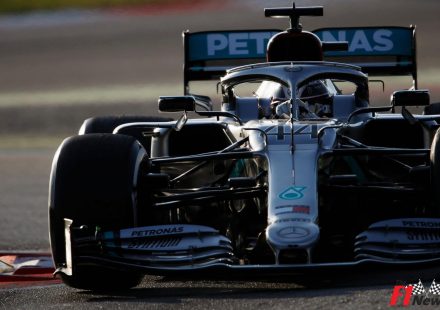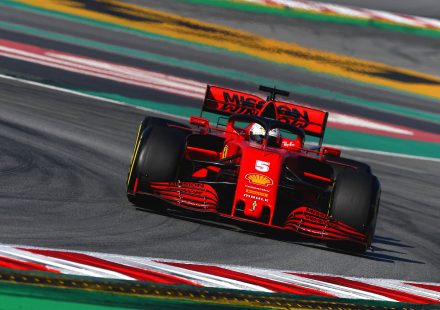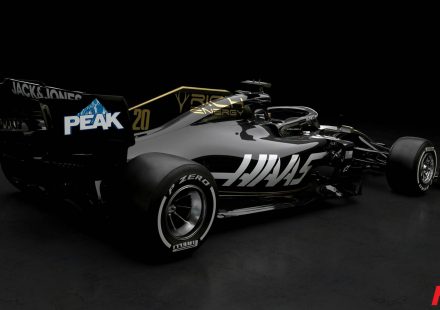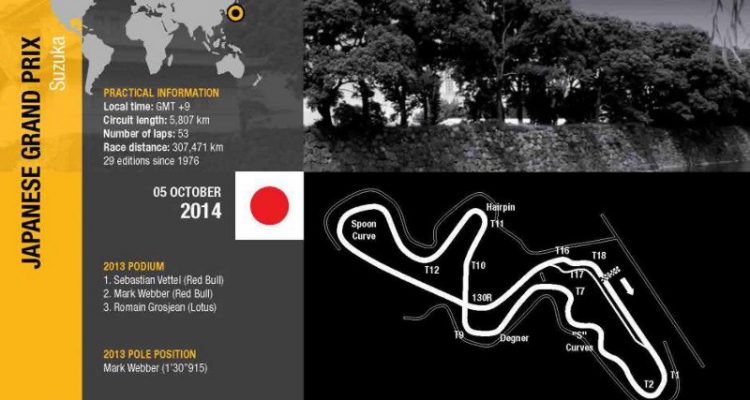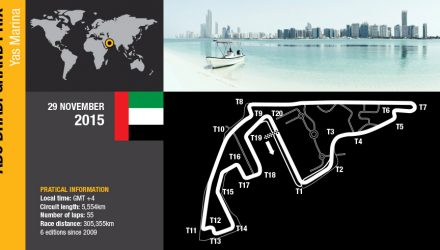Suzuka is one of the classic circuits on the calendar; a real rollercoaster of a circuit that challenges the drivers, engineers and strategists.
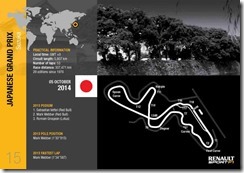 Every part of the car needs to be optimized to deal with the high-speed turns, long periods of open throttle and tight hairpins, and a strong harmony between chassis and engine will really pay dividends. With the risk of sounding like a cliché, the circuit really is a game of two halves. The majority of corners are found in the first part of the circuit, with the ‘power’ section coming in the last half. It’s therefore a circuit where each component of the Power Unit will get a work out and has to be on top of its game.
Every part of the car needs to be optimized to deal with the high-speed turns, long periods of open throttle and tight hairpins, and a strong harmony between chassis and engine will really pay dividends. With the risk of sounding like a cliché, the circuit really is a game of two halves. The majority of corners are found in the first part of the circuit, with the ‘power’ section coming in the last half. It’s therefore a circuit where each component of the Power Unit will get a work out and has to be on top of its game.
The first challenge of the lap is the Esses, a series of bends where the driver will dance with the throttle as he changes direction at high speed. Similar to Silverstone’s Maggotts and Becketts, the driver enters the complex at approximately 245kph and carries the speed through until the exit of the complex. He will spend approximately 15secs in fifth or sixth gear through this section. With plenty of quick lifts and changes of direction, a neutral handling car with good drive throughout the torque range is required. This section gives the MGU-H plenty of time to recover energy through the constant exhaust stream, while the MGU-K will also get a top up as the driver touches the brakes. The best opportunity for the K to recharge the battery, however, will be through the hairpin and then the chicane at the end of the lap.
The second part of the track will really tax the ICE and turbo. The distance from Turn 14 through the awesome 130R to the chicane is 1,250m and the driver will be at full throttle throughout. At full rpm that will take nearly 17secs, meaning the driver will cover 75m each sec. Inside the ICE the pistons will turn at an incredible 200 times per second, generating enormous internal forces.
Due to the strain on each part, we will, where possible, introduce new components for this race. Reliability will start to play a major role in results at this point in the season since every team and driver has had to mix and match as we have learnt more on the operation of the power unit. To keep aces in hand, we may even see teams run fewer miles in practice to save the engines for the rest of the year.
We are however fairly at ease on this front since we have committed ourselves to introduce a sixth power unit where needed. The picture is a lot clearer now and although not exactly ideal to have to introduce new parts and take penalties, we can do this at races where the impact will be minimised. We believe Suzuka will be a good challenge, but one that we are looking forward to with no worries.
Renault Energy F1-2014 Fast Facts
 62% of the lap is taken at full throttle, but the majority of this comes in the second half of the track. Top speed is expected to peak at over 330kph, dependent on the wind direction, one of the highest speeds of the second part of the year.
62% of the lap is taken at full throttle, but the majority of this comes in the second half of the track. Top speed is expected to peak at over 330kph, dependent on the wind direction, one of the highest speeds of the second part of the year.
The strong braking, frequent acceleration and high speed sections of Suzuka will take fuel consumption to the upper limit, but there are plenty of opportunities for the K and H to recover energy under braking and therefore recharge the battery, bringing the fuel consumption within the allowed limits. Similar to Silverstone, we may use the practice of ‘overloading’ where slightly more fuel than necessary is put into the ICE. Running the ICE at a higher average fuel flow produces more overall power, which in turn allows the MGU-K and MGU-H to recover more energy to recharge the battery, which leads to greater car efficiency.
As much as Suzuka is famed for high speed corners, the slower sections also require careful preparation. Turn 11, the hairpin, is taken at approximately 65kph and the challenge is to give the driver the necessary torque response when required. If the torque delivery is correct then it can help the driver avoid wheelspin when the grip is low, particularly if the track is wet.
Suzuka features several changes of altitude, particularly through the 130R where the circuit goes very perceptibly uphill. This impacts the turbo most of all, as it will rotate at a higher speed at the crest of the hill than at the bottom to produce the same amount of power. Engineers will factor this in when looking at maps to equalise driveability throughout the lap.
Renault engines have won nine of the 25 GPs held at Suzuka, a win rate of 36%. Sebastian Vettel is the most successful driver at Suzuka of recent times, having won four of the past five events using the Renault V8.

